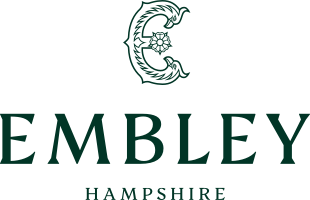Some years ago now, a former Head Girl was in conversation with me about an event she hoped to plan. As the discussion developed, she stopped and all at once asked me if I knew what my problem was...
Now that summons a legion of issues and, conscious that time was likely to be against us, I suggested that perhaps she go with an executive summary and we could map the rest out later. She looked me straight in the eye and said ‘Sir – I think your ideas are too dreamy.’
Dreams have featured large in our lives over the past few months at school – through our production we heard dreams of cattle, consequences and the prophesy of pharaoh, of coats and conflict as we prepared for Joseph. Theologically dreams were the conduit of divine will; a way in which God communicated with his people, Israel and thereafter through Old and New Testaments. They were a vehicle of purpose, of mission and calling. At one point in Joseph, the musical, we hear that ‘any dream will do.’ Well, I’m not so sure about that. In fact, I know it won’t but I will return to this later.
As we began September, the year stretched ahead full of promise and possibility with dreaming and scheming. Some of our dreaming is nicely summarised in the findings of the ISI Inspectors who visited us in October and really got under the skin of the school. Their conclusions were gratifying and humbling, they said:
- Data shows that almost all pupils attain higher examination grades than expected for their ability.
- Pupils’ knowledge, skills and understanding across the curriculum are outstanding, strongly supported by dynamic teaching which incorporates well-structured and carefully paced lessons to foster pupils’ curiosity.
- Pupils are excellent communicators. They converse confidently with each other and with their teachers. Pupils are patient and shrewd listeners, drawing on each other’s ideas and opinions to engage in meaningful dialogue.
- Pupils use numeracy skills with ease in many subjects because mathematics is embedded across the curriculum.
- Pupils are outstanding users of information and communication technology (ICT) in all disciplines and use their devices skilfully to navigate and cross reference in class, enabling rapid progress in their learning.
- Pupils display excellent attitudes to learning. They are focussed and quietly enthusiastic without ever losing sight of the inherent school values, centred on collaboration and compassion towards others.
- Pupils know themselves well and understand the importance of self-discipline and resilience.
- Pupils show excellent capacity to make informed decisions to help them develop their interests and aspirations.
- Pupils display modesty and humbleness about their own attributes, reflecting an egalitarian and compassionate approach to life in keeping with the school’s aims.
- Pupils display an excellent commitment to the contribution they make to others, the school and the community.
- Pupils show a tangible respect for each other. They recognise the school’s ethos in creating a positive, encouraging and welcoming environment where all can develop and flourish as individuals.
Through the many issues of our newsletter and across the news pages of our website, you will read of where our dreaming has taken us, the flights of fancy that have become matters of fact. We may well dream of success, the dreamer Joseph rejoiced in a coat of many colours, but the threads of our ambition have over the year been woven into a cloth more radiant, illuminating and lasting.
Embley is indeed a theatre of dreams but certainly not one in which any dream will do. Dreams of easy indolence; of self-satisfied introspective naval gazing are rudely awakened.
In lines composed above Tintern Abbey in July 1798 Wordsworth talked about:
"that serene and blessed mood in which we are laid asleep in body and …
– we see into the life of things."
Embley’s business is to issue forth into the world a generation of dreamers who see into the life of things.
We dare to dream mighty things; we dare to challenge the received wisdom which relegates dreams behind performance, a pseudo-industrial notion of the vacuity of dreams. Embley replaces this with the vindication that it is the dreamer who creates change.
Our dream is not mired, like the intricacy detailing Victorian stained glass and its fixings, in self-regarding isolation. Our dream is anchored and realised in being our best; in reaching out to others and building an inclusive community.
Our dream is to see through what is, to what could be. If we are not doing that, then What are we for? What is our purpose? Is it to further add cogs to the machine or is it to dream dreams of a better more equal and happier world.
Ours is the business of realising dreams of untapped potential and seeing how far they run. Ours is the business of realising dreams of ambition for the well-being of others and for that, most modern and elusive of dreams, contentment with self.
Our educational dream moves away from the binary where a child either gets it or doesn’t. Our dream is a process of assimilation of truth, formation of understanding and character at ever deeper levels through terms, beyond timetables and builds lives lived with veracity and purpose.
Our dream is of lives lived authentically; free of the sham and subjectivism of the shallow, free of the easy escapologists whose only dream is the cheap and tawdry avoidance and evasion of responsibility.
Ours is a dream of substance, of confidence built on patience and humility – a dream that cherishes realisations bigger than ourselves; that loses the self the better to find it. Ours is a simple dream, but the more noble because of its simplicity. Ours is a dream within our grasp; a dream we can all share.
These are the dreams worth dreaming. Only these will do.
MORE BLOGS —
Parent wants
Been a busy few weeks – though when isn’t it? I have spent quite a bit of time speaking with Prep School Heads.
Bridges
In January 1942, in a small suburb just outside Berlin, a group of engineers, scientists and logicians gathered to map out a strategy that would change the face of Europe.




